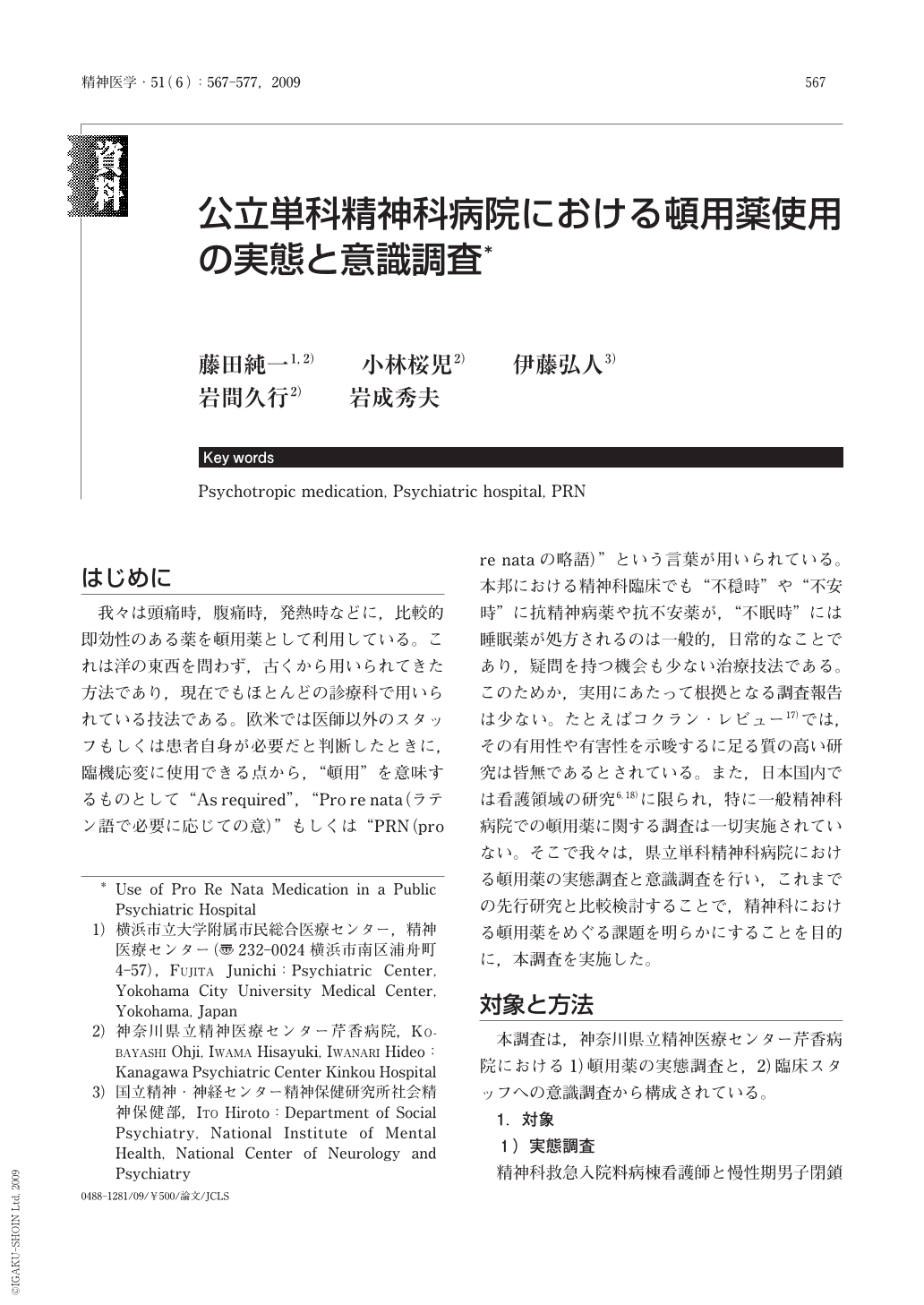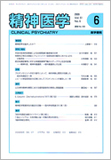Japanese
English
- 有料閲覧
- Abstract 文献概要
- 1ページ目 Look Inside
- 参考文献 Reference
はじめに
我々は頭痛時,腹痛時,発熱時などに,比較的即効性のある薬を頓用薬として利用している。これは洋の東西を問わず,古くから用いられてきた方法であり,現在でもほとんどの診療科で用いられている技法である。欧米では医師以外のスタッフもしくは患者自身が必要だと判断したときに,臨機応変に使用できる点から,“頓用”を意味するものとして“As required”,“Pro re nata(ラテン語で必要に応じての意)”もしくは“PRN(pro re nataの略語)”という言葉が用いられている。本邦における精神科臨床でも“不穏時”や“不安時”に抗精神病薬や抗不安薬が,“不眠時”には睡眠薬が処方されるのは一般的,日常的なことであり,疑問を持つ機会も少ない治療技法である。このためか,実用にあたって根拠となる調査報告は少ない。たとえばコクラン・レビュー17)では,その有用性や有害性を示唆するに足る質の高い研究は皆無であるとされている。また,日本国内では看護領域の研究6,18)に限られ,特に一般精神科病院での頓用薬に関する調査は一切実施されていない。そこで我々は,県立単科精神科病院における頓用薬の実態調査と意識調査を行い,これまでの先行研究と比較検討することで,精神科における頓用薬をめぐる課題を明らかにすることを目的に,本調査を実施した。
Objectives:We examined the frequency of using pro re nata (PRN) medication in 3 units of a public psychiatric hospital.
Method:The subjects were 47 psychiatric inpatients who received PRN medications during a period of 3 weeks in September 2007. In addition, we conducted a questionnaire survey among 11 psychiatrists and 79 psychiatric nurses in order to determine staff attitudes toward PRN regimens.
Results:During the study period, 415 PRN orders were prescribed to 47 patients. A group of 17 (36%) patients who received 10 or more PRN medications each accounted for 72% of the total PRN orders. The frequencies of the PRN orders that were prescribed every 1,000 patient days in an emergency care unit, a long-term unit for men, and a long-term unit for women were 493, 38 and 350, respectively. Among the nurses, 51 (65%) nurses administered PRN medications on the basis of agreements between the patients and nurses, 23 (29%) nurses administered medications on the basis of their independent decisions, and 5 (6%) nurses administered medications on the basis of the psychiatrists' decisions. However, with regard to the ideal approach for administering PRN medications, 41 (52%) nurses believed that the ideal approach should be patient-nurse agreement, 23 (29%) nurses supported the psychiatrists' decisions, 9 (11%) nurses believed in taking indipendent decisions, and 6 (8%) nurses endorsed the idea of seeking the patient' opinions.
Conclusions:Our results suggest that psychiatric patients frequently received PRN medications, and one third of the PRN patients received three fourths of the total PRN orders. The nurses recognized the discrepancy between the actual and ideal situations. However, a large multicenter study on PRN medications is needed to validate the results.

Copyright © 2009, Igaku-Shoin Ltd. All rights reserved.


